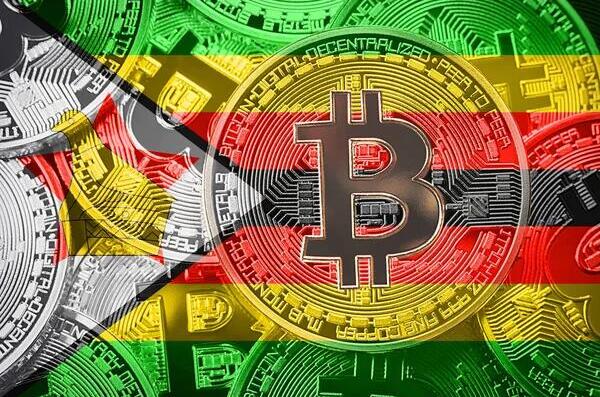Are There Disadvantages to Dealing with Bitcoin?

In the realm of digital currencies, Bitcoin reigns supreme as the undisputed champion. Its decentralized nature, promising anonymity and unprecedented control over one's finances, has captured the imagination of tech enthusiasts and investors alike. However, like all things in life, Bitcoin comes with its own set of potential drawbacks that deserve careful consideration before taking the plunge.
Can Fluctuating Value Be a Dealbreaker?
Bitcoin's meteoric rise in value over the years has been the talk of the town. But here's the catch: the cryptocurrency's value is notoriously volatile, experiencing wild fluctuations that can leave investors with a rollercoaster of emotions.
Like a roller coaster ride through the Grand Canyon, Bitcoin's price can plummet as quickly as it soars, leaving even the most seasoned traders clutching their virtual wallets in fear. Just when you think you're soaring towards the heavens, a sudden drop can send you crashing down into despair.
| Date | Price |
|---|---|
| December 2017 | $19,600 |
| February 2018 | $6,000 |
| June 2019 | $10,000 |
| March 2020 | $3,800 |
| April 2021 | $63,000 |
As you can see from the table above, Bitcoin's value can swing wildly within short periods. This volatility is a double-edged sword: it can create opportunities for profit but also exposes investors to significant risks. If you're the type who prefers a steady climb up the financial ladder rather than a wild ride on a virtual seesaw, Bitcoin's volatility may not be your cup of tea.
Are Transaction Fees a Drain on Your Crypto Dreams?
When it comes to transacting in Bitcoin, you'll need to be prepared to pay up. Gas fees, the miners' cut for processing transactions, can vary significantly depending on network congestion and transaction size.
Imagine trying to hail a cab during rush hour. The more people vying for a ride, the higher the fare. It's the same principle here. When Bitcoin's network is busy, transaction fees can skyrocket, making small transactions impractical and large ones downright expensive.
| Transaction Size | Average Fee |
|---|---|
| $10 | $5 |
| $100 | $10 |
| $1,000 | $50 |
| $10,000 | $100 |
While fees have come down in recent years, they can still be a significant hurdle, especially for those making frequent or small transactions. If you're looking for a lightweight and affordable way to move your money around, Bitcoin's transaction fees may be a barrier to entry.
Is Security a Myth in the Crypto Wild West?
The decentralized nature of Bitcoin, while providing anonymity and autonomy, also poses security challenges. There's no central authority to oversee transactions or protect your funds in case of theft or loss.
Think of it as being your own bank, with all the responsibilities and risks that come with it. If you lose your private keys, which are essentially the passwords to your Bitcoin wallet, your coins are as good as gone. And if you fall victim to a hack or scam, there's no way to recover your losses.
The lack of regulation and oversight in the cryptocurrency space further compounds these security concerns. Exchanges and platforms can operate with little accountability, leaving investors exposed to fraud and manipulation. It's like navigating a dark alleyway filled with shady characters, where trust is a scarce commodity.
Can Scalability Concerns Hamper Bitcoin's Growth?
As Bitcoin's popularity grows, so does the strain on its network. The network's limited capacity means that transaction processing can become slow and costly during periods of high demand.
Imagine trying to squeeze a hundred people into a tiny elevator. It's going to be a slow and uncomfortable ride. The same goes for Bitcoin. When the network is congested, transactions can take hours or even days to complete.
Developers are working on solutions to improve scalability, such as the Lightning Network. However, these solutions are still in their early stages and it remains to be seen if they can effectively address the network's limitations. For now, Bitcoin's scalability issues may pose a constraint on its adoption as a widespread payment system.
Is Bitcoin an Outlaw in the World of Finance?
While Bitcoin has gained mainstream recognition, it still lacks the widespread acceptance and legal tender status of traditional currencies.
Governments around the world are still grappling with how to regulate cryptocurrencies. Some countries have embraced them, while others have taken a more cautious approach or even banned them altogether.
This regulatory uncertainty can create challenges for businesses and individuals who want to use Bitcoin for payments or investments. It also raises concerns about the legality and legitimacy of Bitcoin transactions.
As the regulatory landscape evolves, it remains to be seen how Bitcoin's legal status will impact its adoption and long-term prospects.
Bitcoin has revolutionized the financial landscape, providing a new and exciting way to manage and transact money. However, it's essential to be aware of its potential disadvantages before embracing it as your go-to currency or investment vehicle.
Like any groundbreaking technology, Bitcoin comes with its own set of challenges that need to be addressed. Volatility, transaction fees, security concerns, scalability limitations, and regulatory uncertainties are all factors to consider. By weighing these disadvantages against the potential benefits, you can make an informed decision about whether Bitcoin is the right choice for you.
Interactive Engagement
Are you a Bitcoin enthusiast or a cautious skeptic? Share your thoughts and experiences with Bitcoin. What are your biggest concerns or expectations about its future? Let's engage in a lively discussion about the pros and cons of this digital currency.
Please indicate:COINLIVEBASE » Are there disadvantages to dealing with Bitcoin?